When it comes to choosing the best bedding for a restful night’s sleep, two popular fabric options often come to mind: bamboo and cotton. Both materials have their merits, but they also have some significant differences that can impact your sleep experience. In this blog, we’ll compare bamboo and cotton bedding to help you make an informed decision on which is the better choice for your comfort, health, and sustainability needs.
1. Comfort and Softness
When it comes to softness, bamboo bedding has the upper hand. Bamboo sheets are often described as feeling softer than cotton, sometimes even compared to silk due to their smooth texture. The natural fibers of bamboo are gentler on the skin, which means less friction while sleeping, leading to a more comfortable rest. Bamboo sheets also have a unique ability to maintain their softness over time, even after many washes.
Cotton, while soft, can lose its smoothness with frequent washing, especially if it’s not high-quality cotton. Cotton bedding tends to feel a bit rougher compared to bamboo, and it can sometimes feel scratchy, especially if it’s made from low-grade cotton or lacks proper finishing.
Winner: Bamboo
2. Breathability and Temperature Regulation
Bamboo bedding is highly breathable, allowing air to flow through the fabric easily. This helps to regulate your body temperature throughout the night, keeping you cool in warm weather and warm in cooler conditions. Bamboo fibers naturally wick away moisture, ensuring that you stay dry and comfortable even on hot nights or during sweaty sleep sessions.
Cotton is also breathable but doesn’t perform as well as bamboo when it comes to moisture-wicking. While cotton can keep you cool in warmer climates, it may retain moisture and feel damp or sticky if you sweat during the night. Cotton bedding tends to absorb moisture, which can make it uncomfortable for those prone to night sweats.
Winner: Bamboo
3. Durability and Longevity
Both bamboo and cotton can be durable, but bamboo bedding has a clear edge in this area. Bamboo fibers are naturally strong and resistant to wear and tear, making them more durable and long-lasting. Bamboo sheets are less likely to pill or fray over time, even with repeated washing. They maintain their softness and smoothness longer than cotton sheets.
Cotton sheets, particularly those made from lower-quality cotton, can start to show signs of wear after a few washes. Pilling and fading are common issues with cotton bedding, especially if it’s not made from high-quality, long-staple cotton.
Winner: Bamboo
4. Moisture-Wicking Properties
Bamboo bedding excels when it comes to moisture-wicking. Bamboo fibers absorb and draw moisture away from the body, keeping you dry throughout the night. This moisture-wicking property is particularly beneficial for people who sweat heavily during sleep or live in humid environments. Bamboo sheets keep moisture off your skin, reducing discomfort and helping maintain a cool sleeping surface.
Cotton also absorbs moisture but tends to hold on to it longer, which can leave you feeling damp and uncomfortable. This can be an issue if you’re prone to sweating or if you live in a humid climate.
Winner: Bamboo
5. Hypoallergenic and Antibacterial Properties
Bamboo has natural antibacterial and hypoallergenic properties, making it an excellent choice for people with sensitive skin, allergies, or respiratory issues. Bamboo’s fibers resist bacteria and other microorganisms, helping to keep your bedding cleaner for longer. This also reduces the risk of skin irritation and allergic reactions.
Cotton, while soft and natural, is not inherently antibacterial or hypoallergenic. Cotton bedding may harbor dust mites, mold, and other allergens if it’s not properly cleaned and maintained. For people with allergies or asthma, cotton bedding can exacerbate symptoms, especially if it’s treated with chemicals or if the cotton is of lower quality.
Winner: Bamboo
6. Environmental Impact
When it comes to sustainability, bamboo has a clear advantage. Bamboo is a highly renewable resource that grows quickly, requires minimal water, and doesn’t need pesticides or fertilizers to thrive. It also absorbs carbon dioxide at a higher rate than most other plants, making it a more environmentally friendly option for those looking to reduce their carbon footprint.
Cotton, on the other hand, is a water-intensive crop that often requires the use of pesticides and fertilizers, which can harm the environment. While organic cotton is a more sustainable option, it’s still not as eco-friendly as bamboo due to the amount of water and land required to grow it.
Winner: Bamboo
7. Cost Comparison
While bamboo bedding offers a range of benefits, it typically comes at a higher price point than cotton bedding. The production process for bamboo fabric is more labor-intensive and requires more advanced technology, which can contribute to the higher cost. However, many find the investment worthwhile due to the durability and long-term benefits bamboo bedding provides.
Cotton bedding, especially basic cotton options, tends to be more affordable upfront. However, lower-quality cotton sheets may not last as long, which could mean replacing them more frequently in the long run.
Winner: Cotton (for budget-conscious buyers), Bamboo (for long-term investment)
8. Maintenance and Care
Both bamboo and cotton bedding require some care to maintain their softness and longevity, but bamboo bedding is generally easier to maintain. Bamboo sheets tend to hold up better after multiple washes and are less likely to shrink or fade compared to cotton. Bamboo is also resistant to wrinkles, which means less ironing and fewer wrinkles on your bed.
Cotton sheets, while easy to care for, tend to wrinkle more easily and may shrink with repeated washes. High-quality cotton can be easier to care for than lower-grade cotton, but even the best cotton requires proper maintenance to avoid deterioration.
Winner: Bamboo
Conclusion: Which is the Better Bedding Choice?
Ultimately, the decision between bamboo and cotton bedding comes down to your personal preferences and priorities. If you’re looking for a luxurious, eco-friendly, and hypoallergenic option that offers superior breathability, moisture-wicking properties, and long-lasting durability, bamboo bedding is the clear winner. It provides a cooler, more comfortable sleep while being gentler on the skin and the planet.
However, if you’re on a tighter budget or prefer the feel of traditional cotton, high-quality cotton sheets can still offer comfort and breathability. Keep in mind that cotton bedding may require more maintenance and can be less durable than bamboo over time.
At the end of the day, the choice is yours, but if you’re ready to make the switch to a more sustainable and comfortable option, bamboo fiber bedding could be the best investment for your sleep and your health.
Shop Gokotta’s Bamboo Bedding Collection
Explore Gokotta’s Bamboo Fiber Bedding and experience a superior sleep with the ultimate in comfort and sustainability.






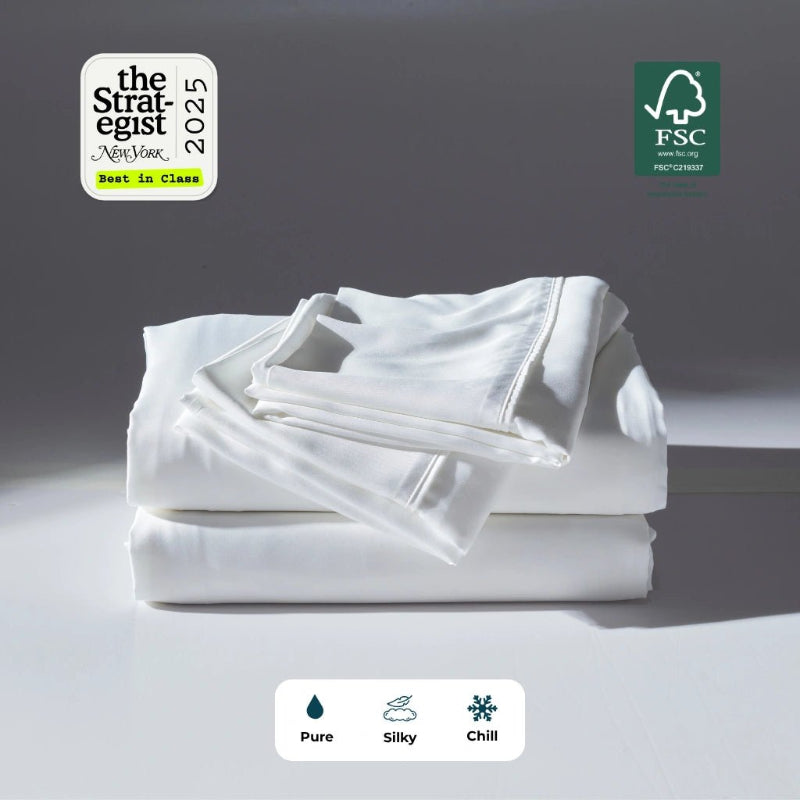
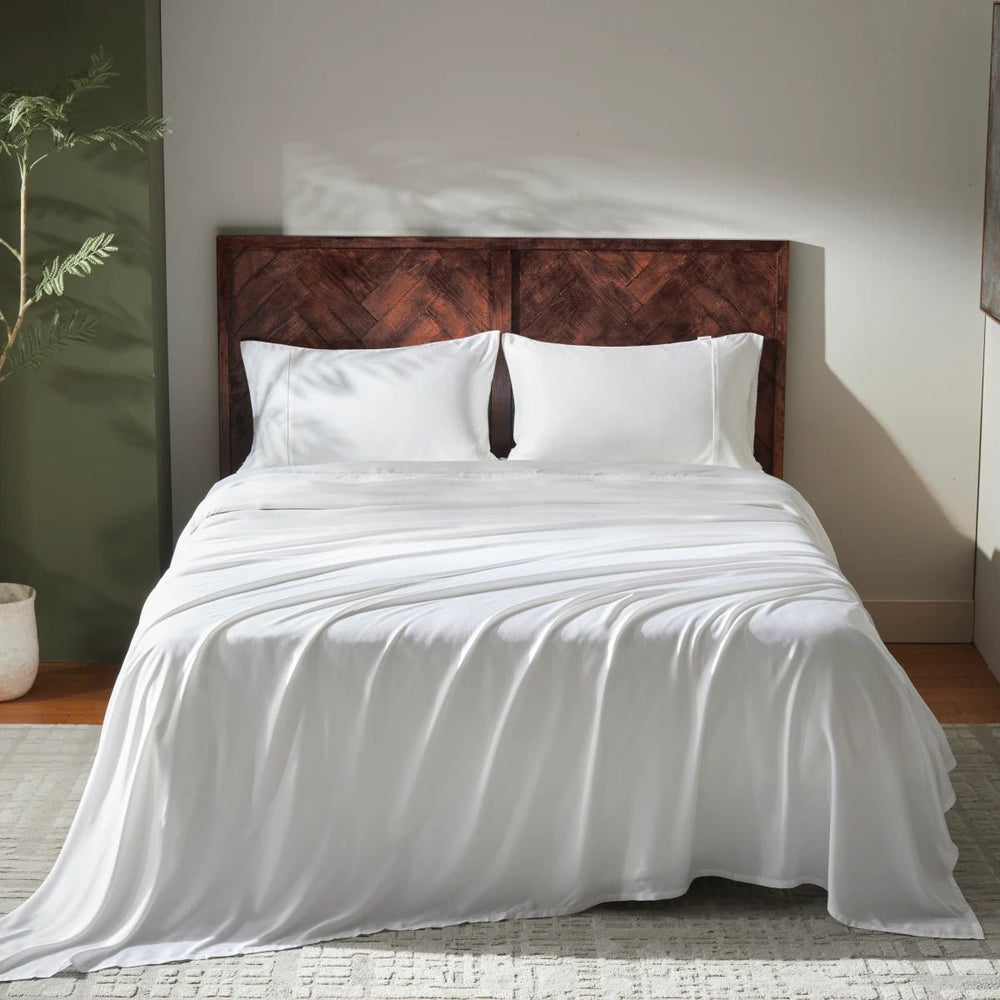
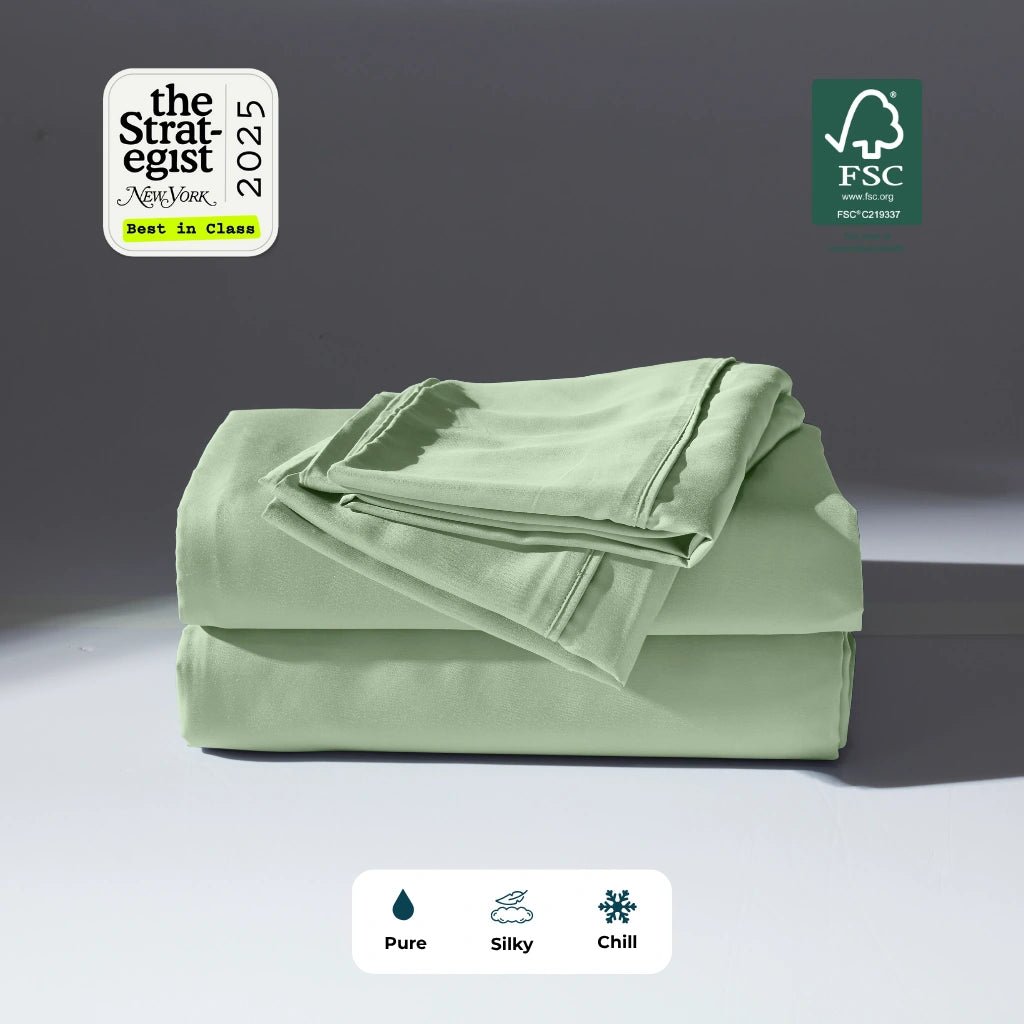
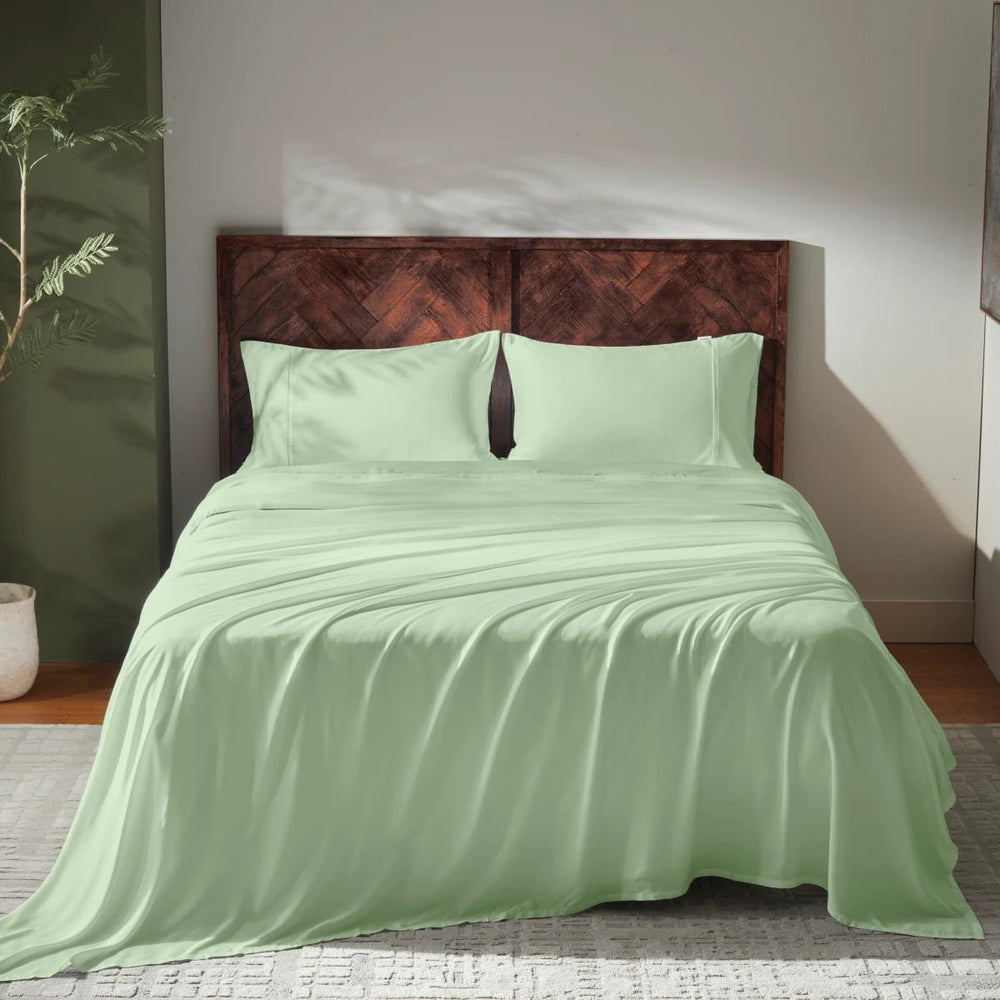
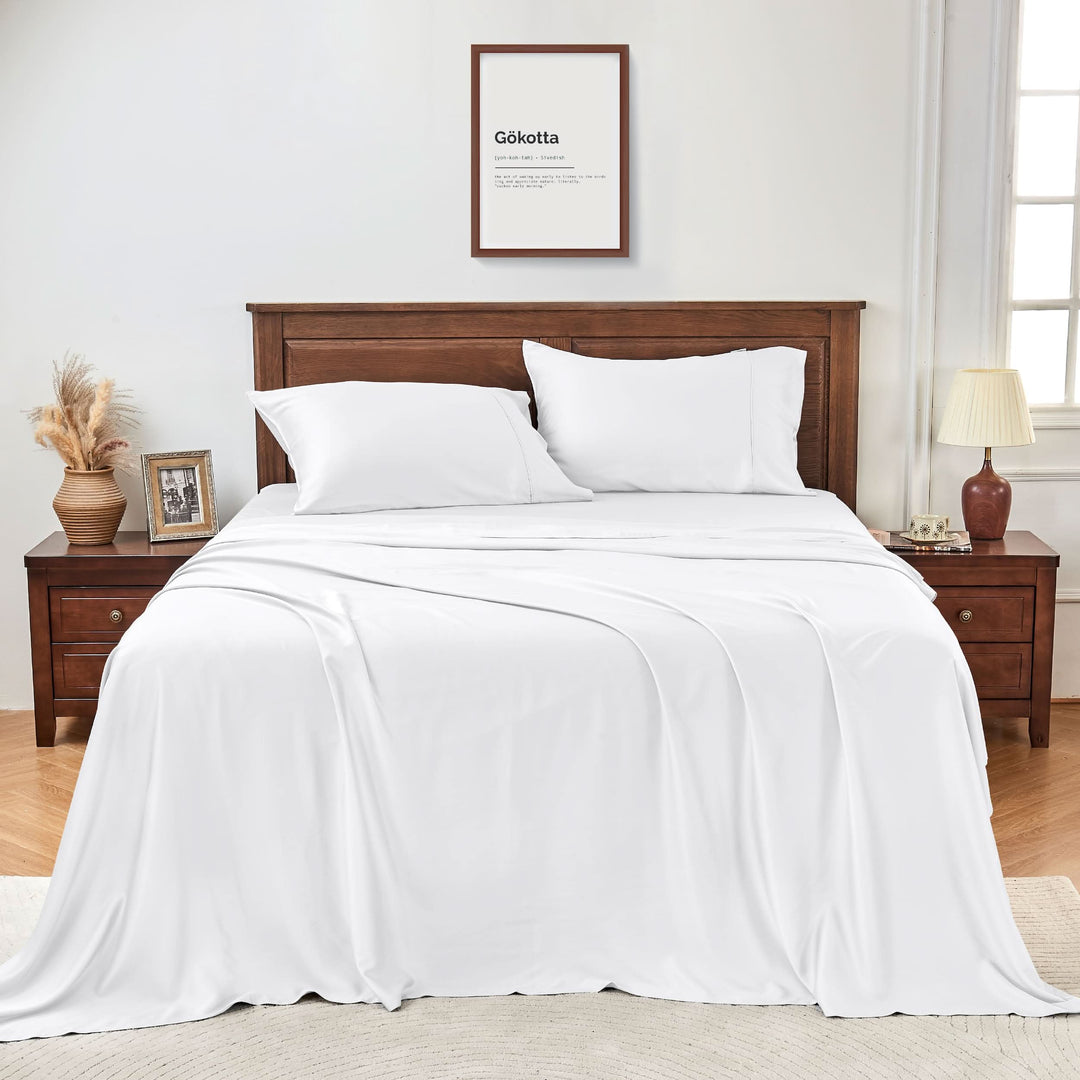
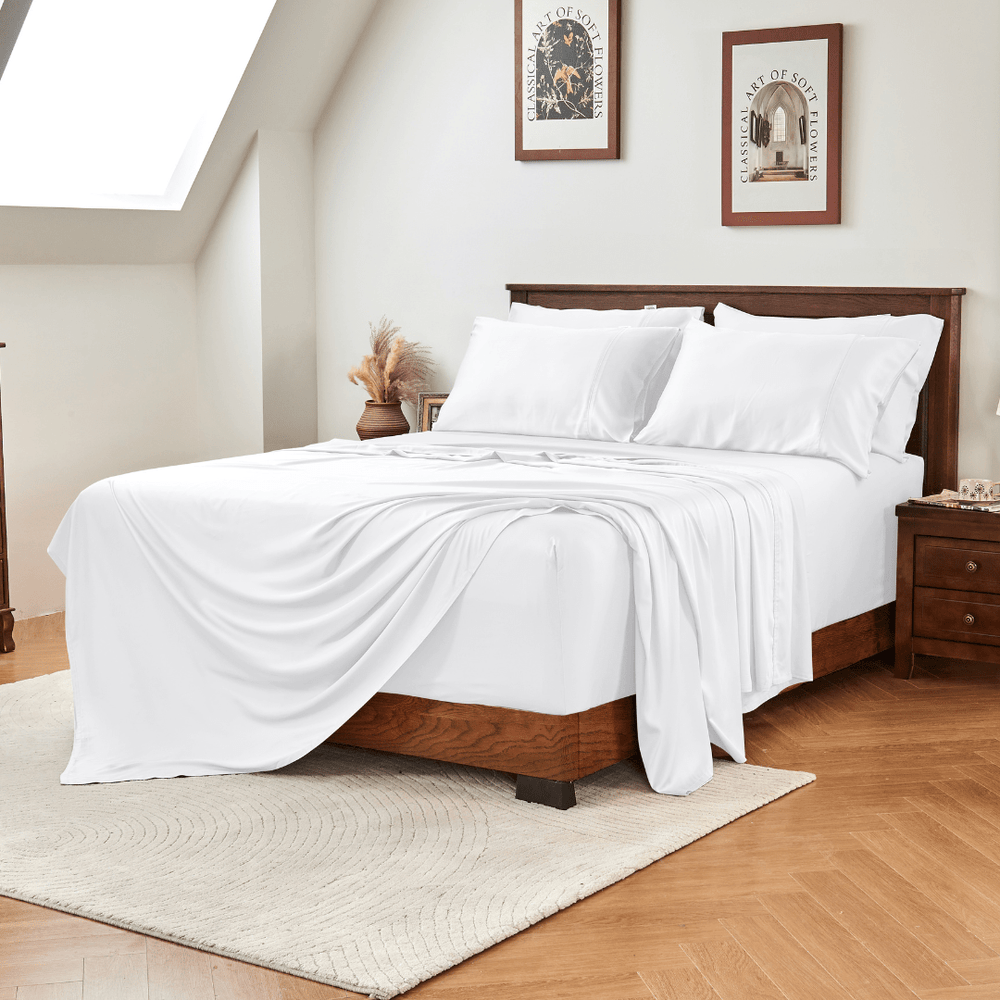


Leave a comment